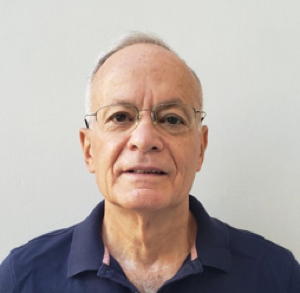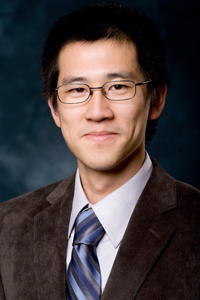Organizing Committee
Chair

Metin Akay
University of Houston
Metin Akay received his B.S. and M.S. in Electrical Engineering from the Bogazici University, Istanbul, Turkey in 1981 and 1984, respectively, and a Ph.D. degree from Rutgers University in 1990. He also received an honorary Ph.D. from the Aalborg University in 2015. He is currently the founding chair of the new Biomedical Engineering Department and the John S. Dunn professor of biomedical engineering at the University of Houston. He is currently the President of IEEE Engineering in Medicine and Biology Society.
He has played a key role in promoting biomedical education in the world by writing and editing several books, editing several special issues of prestigious journals, including the Proc of IEEE, and giving several keynotes and plenary talks at international conferences, symposiums, and workshops regarding emerging technologies in biomedical engineering. He is the founding editor-in-chief of the Biomedical Engineering Book Series published by the Wiley and IEEE Press and the Wiley Encyclopedia of Biomedical Engineering. He is also the editor of the Neural Engineering Handbook published by Wiley/IEEE Press and the first steering committee chair of the IEEE Trans on Computational Biology and Bioinformatics.
He established the IEEE EMBS Special Topic Conference on Neural Engineering. He is also the chair of the IEEE EMBS Neuroengineering Technical Committee. He was the program chair of the International IEEE EMBS 2001 and the co-chair of the International IEEE EMBS 2006 and the program co-chair of the International IEEE EMBS 2011 and the IEEE EMBS Point-of-Care Health Technologies (POCHT) 2013. He currently serves on the advisory board of several international journals including the IEEE T-BME, IEEE T-ITIB, Smart Engineering Systems, etc. and furthermore serves on several NIH and NSF review panels Dr. Akay is a recipient of the IEEE EMBS Early Career and Service awards as well an IEEE Third Millenium Medal and is a fellow of IEEE, the Institute of Physics (IOP), the American Institute of Medical Biological Engineering( AIMBE), and the American Association for the Advancement of Science (AAAS). His Neural Engineering and Informatics Lab is interested in developing a novel Brain Chip for precision medicine and an intelligent wearable system for monitoring and detecting coronary artery disease. In addition, his lab is currently investigating the effect of maternal alcohol and nicotine intake on the health risk in newborns.
Co-Chairs

Paul Sajda
Columbia University
Paul Sajda is a Professor of Biomedical Engineering, Electrical Engineering and Radiology (Physics) at Columbia University. He is also a Member of Columbia’s Data Science Institute and an Affiliate of the Zuckerman Institute of Mind, Brain and Behavior. He received a BS in electrical engineering from MIT in 1989 and an MSE and PhD in bioengineering from the University of Pennsylvania, in 1992 and 1994, respectively. Professor Sajda is interested in what happens in our brains when we make a rapid decision and, conversely, what processes and representations in our brains drive our underlying preferences and choices, particularly when we are under time pressure. His work in understanding the basic principles of rapid decision-making in the human brain relies on measuring human subject behavior simultaneously with cognitive and physiological state. Important in his approach is his use of machine learning and data analytics to fuse these measurements for predicting behavior and infer brain responses to stimuli. Professor Sajda applies the basic principles he uncovers to construct real-time brain-computer interfaces that are aimed at improving interactions between humans and machines. He is also applying his methodology to understand how deficits in rapid decision-making may underlie and be diagnostic of many types of psychiatric diseases and mental illnesses. Professor Sajda is a co-founder of several neurotechnology companies and works closely with a range of scientists and engineers, including neuroscientists, psychologists, computer scientists, and clinicians. He is a fellow of the IEEE, AMBIE and AAAS and Chair of the IEEE Brain Initiative. He is also a recent recipient of the DoD’s Vannevar Bush Faculty Fellowship (VBFF).

David Elad
Tel Aviv University
David Elad is a professor of Biomedical Engineering at Tel Aviv University in Israel since 1985. He received his D.Sc. in Biomedical Engineering on 1982 from the Technion, Israel. He was then awarded the Rothschild and Bantrell post-doctoral fellowships at Imperial College London and M.I.T. During 2014-2019, he was also affiliated with the Department of Biomedical Engineering of Columbia University. His research work in Respiratory Biomechanics and Reproductive Bioengineering spans from cellular to organ levels. In the late 80’s he pioneered computational studies of transport phenomena in the nasal cavity. In the early 90’s he initiated a research program in bioengineering of human reproduction, which he promoted worldwide. His current research is focused on the mechanobiology of the uterine wall and biomimetic active ventilation of indoors. David has been a visiting scholar in prestigious universities. He was a member of the World Council for Biomechanics (2002-14) and presently is a fellow of the AIMBE, BMES, IAMBE and EAMBES.

Yasemin Akay
University of Houston
Yasemin M. Akay is currently an Associate Professor at the Department of Biomedical Engineering, Cullen College of Engineering, University of Houston. She received her B.S. in Pharmaceutical Sciences from the Hacettepe University, Ankara, Turkey in 1980 and M.S. and Ph.D in Biomedical Engineering from the Rutgers University, Piscataway, NJ, USA in 1991 and 1998, respectively.
Her research focuses on novel technologies for cost-effective high-throughput screening of novel cancer drugs and therapeutics and assessment of treatment responses. She is currently assessing the effectiveness of the optimal combination of anticancer drugs, obtained from the brain cancer chip, in treating GBM tumors in the respective mouse models. The ultimate goal of her research is to use the optimal drug combinations determined in vitro for each patient in their respective mouse model to show that the results from the in vivo mouse studies will support the results obtained from in vitro studies.
She is also currently exploring the effect of maternal nicotine and alcohol exposures on Dopamine neurons within the sub-regions of the VTA during early maturation at both cellular and molecular levels.
Publicity and Social Media Promotion Team

Ting Chen, Ph.D.
University of Houston

Khanita Duangchaemkarn, Pharm.D
University of Phayao, Thailand

Nancy Zimmerman, MBA
IEEE EMBS

Hans van Oostrom, Ph.D
van Oostrom Consulting